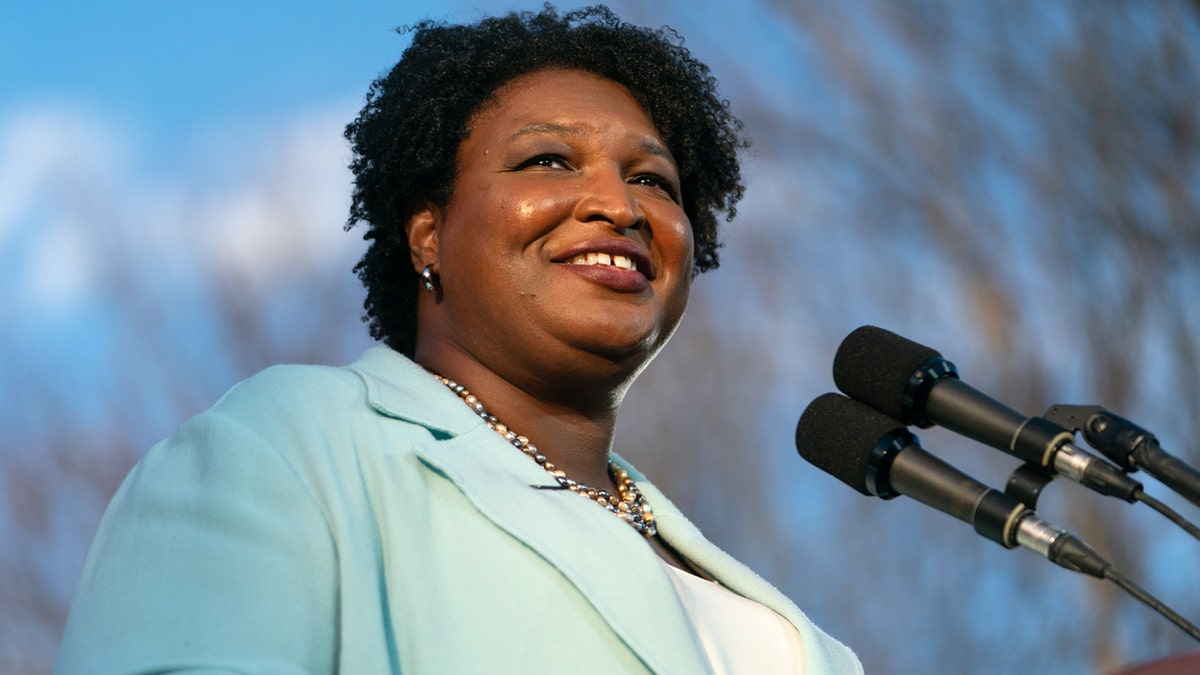CBS lays out 'criteria' for how it defines 'election deniers'
CBS News laid out how it labels GOP candidates running in the 2022 midterms as "election deniers" while avoiding all the Democrats who have previously rejected election results.
CBS News released its "criteria" for how it defines the term "election deniers," which has such a narrow scope that it only pertains to Republicans.
On Thursday's installment of "CBS Mornings," CBS News correspondent Scott MacFarlane shared analysis of every federal and statewide race of 590 Republican candidates showing that a majority of them, 308, were deemed "election deniers," which includes 238 out of 436 GOP House candidates, 20 out of 36 GOP Senate candidates and 20 out of 36 GOP gubernatorial candidates.
MacFarlane then outlined who CBS News considers "election deniers," saying those who do at least one of six listed actions would get the label.
The actions are "questioned legitimacy of Biden's election," "said 2020 election was stolen," "repeated disproven claims of fraud," "signed onto the Texas lawsuit to overturn the 2020 election," "objected to 2020 electoral college count on Jan. 6" as well as "supported 2020 audit."

CBS News correspondent Scott MacFarlane tells viewers what the network considers to be "election deniers" on the Nov. 3, 2022 broadcast of "CBS Mornings. (Screenshot/CBS News)
"Among the 308 are candidates from 48 different states across the country and it includes Republican incumbents who are questioning the validity of the very ballots upon which they were elected to," MacFarlane told viewers.
However, not mentioned in CBS News' "criteria" were any instances of Democrats denying elections won by Republicans in past election cycles.
The most prominent Democrat who may fall under broadened criteria during the 2022 midterms is Stacey Abrams, the Georgia gubernatorial candidate who infamously never conceded her 2018 defeat against current Republican Gov. Brian Kemp.

Stacey Abrams, Democratic gubernatorial candidate for Georgia, during a "One Georgia Tour" campaign event in Atlanta, Georgia on Monday, March 14, 2022. (Elijah Nouvelage/Bloomberg via Getty Images)
Several top Democratic lawmakers seeking reelection next Tuesday have denied the results in past presidential elections.
In 2001, several Democratic lawmakers rejected George W. Bush's electoral college victory in Florida including Reps. Barbara Lee, Sheila Jackson Lee, and Maxine Waters.
In 2005, 31 Democrats including Rep. Bennie Thompson, chairman of the Jan. 6 select committee, and Majority Whip James Clyburn challenged President Bush's 2004 victory, particularly in the state of Ohio.
Then-House Minority Leader Nancy Pelosi defended her colleagues at the time, saying they wanted to discuss the "real problems of the electoral system and the failings of the process in Ohio and elsewhere."
In 2017, Reps. Jamie Raskin, Pramila Jayapal and Jim McGovern joined other Democratic lawmakers including Lee, Jackson Lee and Waters to object to Donald Trump's electoral votes.
Rep. Jerry Nadler said Russia's interference in the 2016 election made Trump an "illegitimate" president. Rep. Ted Lieu similarly suggested there was a "cloud of illegitimacy" over Trump's presidency
Notably, after conceding the 2016 presidential election, Hillary Clinton has repeatedly called Trump an "illegitimate president."

Hillary Clinton at Venice Film Festival (Andreas Rentz)
CBS News did not immediately respond to Fox News' request for comment.
Democrats have attempted to frame the 2022 midterms as a "battle for democracy" by trying to keep the focus on the Republicans who did not accept President Biden's election victory and on the events of Jan. 6.
CLICK HERE TO GET THE FOX NEWS APP
However, voters have overwhelmingly prioritized the economy and inflation as the biggest issues that are top of mind when casting their ballots.

